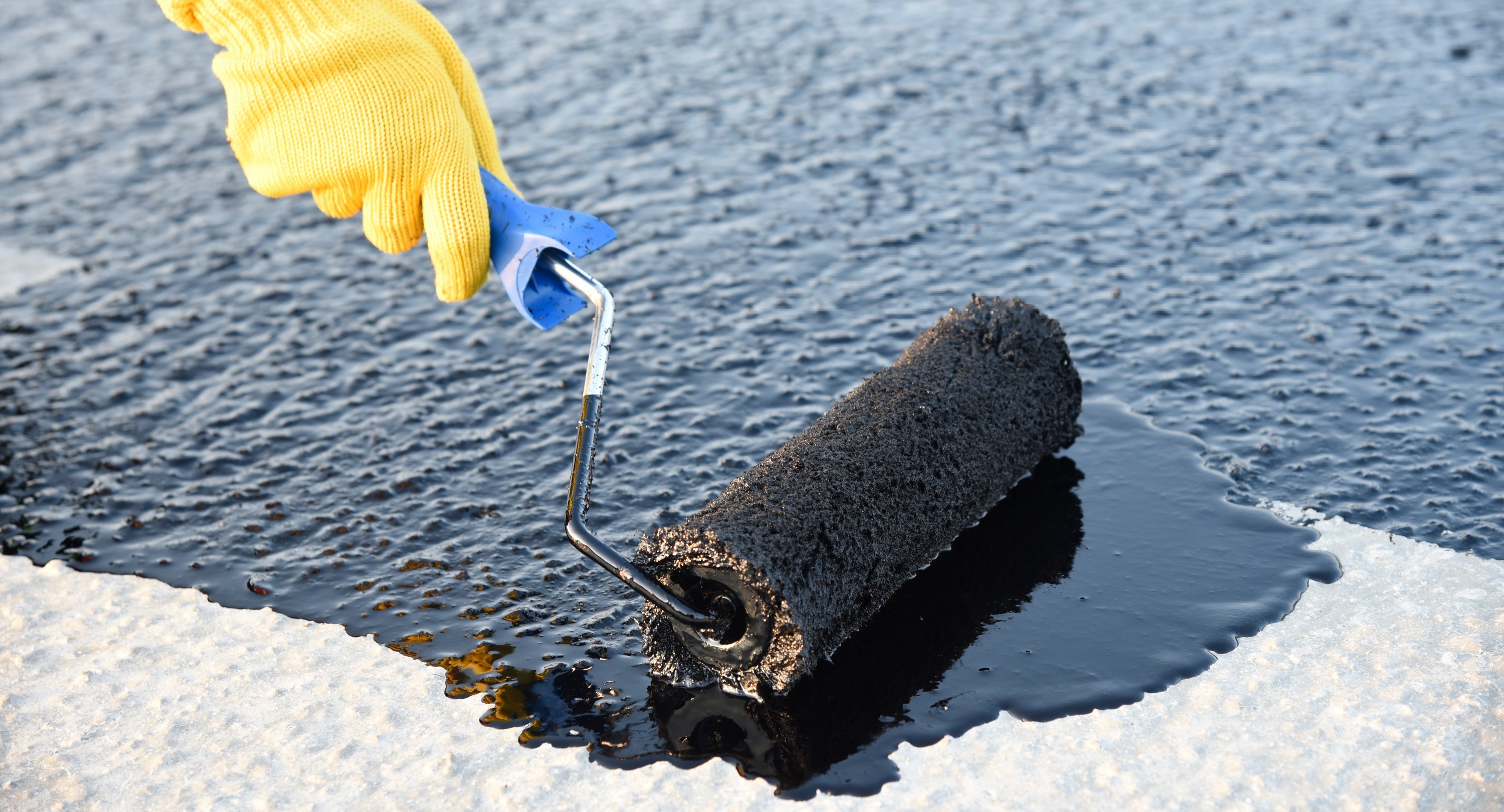Simple and Energy-Saving Bituminous Waterproofing Coating without Heating

KEY INFORMATION
Chemicals - Organic
TECHNOLOGY OVERVIEW
Bitumen is widely used as an essential binder for many applications due to its excellent adhesive properties, waterproofing, and high durability. However, the conventional application of bitumen involves on-site melting at high temperature exceeding 250°C, necessitating rapid pouring on the surface with additional torch-on, which poses complications and safety risks. Moreover, the on-site melting process releases harmful gases, including hydrogen sulphide and volatile organic compounds (VOCs), endangering workers and nearby areas. To address these challenges, there is a need to develop a safer form of bitumen that does not compromise material performance.
This technology transforms solid bitumen into a single-component liquid bituminous coating at room temperature via a simple and cost-effective formulation using solvents, fillers, and additives. The fillers used in the single-component liquid bituminous coating can be made from waste materials such as food waste. Such sustainable fillers could offer comparable material performance to conventional industrial fillers.
This high-performance bituminous coating has excellent workability at room temperature, fast drying, and easy production without the need for heating. Thus, this technology eliminates the hazards associated with conventional application of bitumen, providing a safe and energy-saving alternative. One practical application of this technology is a roof waterproofing system that complies with Singapore standards SS133:2017 and/or SS374:1994 (2023).
This technology is available for R&D collaboration, IP licensing, and test-bedding with industrial partners in the construction and infrastructure sectors.
TECHNOLOGY FEATURES & SPECIFICATIONS
- Free of smoke and fumes
- Simple and energy-saving production (no heating required)
- Water-resistant, corrosion-resistant, and UV resistant
- Fast-drying and odourless after drying
- Easy application with excellent coverage
- Can be easily applied by brush, spray, squeegee, or trowel
- Compatible with various substrates and structures (dry or damp surfaces)
- Applicable to both horizontal and vertical surfaces without substantial runoff
- Option to incorporate sustainable fillers
- Complies with SS133:2017 and/or SS374:1994 (2023) standards
POTENTIAL APPLICATIONS
The potential applications include:
- Primer and paints
- Waterproofing coating
- Sealants
- Adhesives
- Binder additive in various substrates, including cement, concrete, metal structures, and castings
Unique Value Proposition
The technology offers the following unique features:
- Transform solid bitumen into a single-component liquid bituminous coating at room temperature via a simple and cost-effective formulation
- Option to incorporate sustainable fillers
- Simple, eco-friendly, and energy-saving process without heating
- Can be applied to different structural elements for waterproofing, damp proofing, and corrosion resistance
